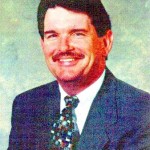By Greg Flakus
One of the emerging trends is for venues to produce their own event. The traditional model is changing as more sales departments look to find new revenues by creating their own events.
We talked with three venue managers and asked them to tell us what they have learned from doing this at their venue.
Matt Gibson is the manager of the Spokane Arena in Spokane, Washington. In 2016 his staff working with their food contractor created a new event called the Spokane Brew Fest.
“We try to have an entrepreneurial spirit,” said Gibson. “Our board allows us to try new things and we knew the first year would be a struggle.”
Gibson said the biggest lesson learned in year one was that “it takes a while to get an event recognized.”
“We took a loss in the first year and we knew we would,” Gibson said.
The second event was held this August on the same site. Gibson said this year the arena was able to partner with a local non-profit and control costs. “From all we have been told an event turns the corner in the third year,” he said.
Does he have any advice for other venues looking to create their own event?
“Be sure you can plan not just for one year, but plan for three years,” he said. “Use the event to get more of the community involved.”
Tom Sessa has been at the Portland’5 Centers for the Arts for the last three years. Sessa was hired to look for and book shows, lectures, and other performances for the complex located in downtown Portland. Sessa came to the venue after 14 years as the manager of iconic Portland performance venue Aladdin Theater.
In his first year on the new job, he was able to add 14 events that were produced and presented by the venue. This year there will be more than 50.
What has allowed him to be so successful in just three years?
“Listening to our audiences and finding out what they would like to see,” Sessa said. “By doing this and looking for the kind of off-center or not usually the kind of show that would stop in Portland we can attract unique shows. We also are able to address inclusiveness and bring to the community many shows that are from smaller acts.”
Sessa mentioned one recent act as a big success. “We were able to bring Black Violin to our performance hall and sell it out,” he said. “It was great, because we were able to have them visit local schools while they were here for their performances.”
As far as lessons to share, Sessa said that “sometimes you book performances that may not be what your audience wants. Be sure to do surveys and talk to your current attendees. Be careful not to book some act because you like it.”
Sessa also said that the ability to do 50 shows has helped the Portland’5 with inclusion and also with the ability to be diverse with types of acts selected.
We also reached out to two fairgrounds, the Clark County Events Center in Ridgefield, Washington, and the Central Washington State Fair in Yakima, Washington, for their views on producing their own events. Both said they have done a few events on their own. Both venues said they did not create the events, but took over events that the promoter either did not want to produce any more or did not want to bring to their market again.
Both have taken over and produced two annual gift shows, as well as an antique and collectors show and a very good car show they have been able to grow.
When I asked them what made them decide to take over these shows they both shared that “attendance numbers in the past and the interest from current vendors at these shows” made the decision for them.
Greg Flakus is owner/principal of Gf Strategies, Inc., in Vancouver, Washington. 
